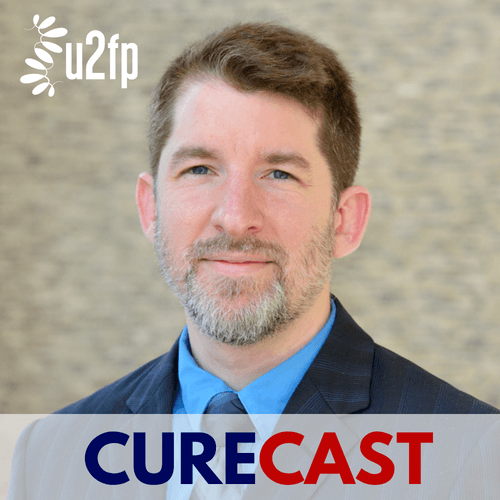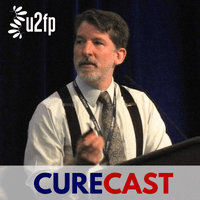Bladder Chatter (Episode 102)

Guest: Dennis Bourbeau
Today we’re talking with Dennis Bourbeau. Dennis is a highly regarded clinical and academic researcher in the area of bowel, bladder, and sexual function. He works for the Louis Stokes Veterans Administration Hospital and the Metro Health County Hospital in Cleveland, OH. He’s also a faculty member at Case Western Reserve University. Dennis has graciously agreed to come back to chat with us a second time and give us an update on his work, specifically in bladder control devices. We also discuss the critical importance of connecting with and understanding the patient population, the process of getting a device to the market, and much more.
As always, please share your thoughts with us via email at curecast@u2fp.org. Thanks for listening!
Listen on: Spotify | Apple Podcasts | Soundcloud
Bumper music: Dig a Hole by Freaque
Guest Bio
Dennis Bourbeau, PhD, is a research investigator in the Research Service at the Louis Stokes Cleveland Department of Veterans Affairs Medical Center, a Staff Scientist in the Department of Physical Medicine and Rehabilitation at the MetroHealth Medical System, and an Assistant Professor in the Department of Physical Medicine and Rehabilitation at Case Western Reserve University School of Medicine. His research focuses on developing approaches that use electrical stimulation to restore pelvic autonomic functions, including bladder and bowel functions, lost to spinal cord injury or other neurological disorders. He has conducted studies with individuals with spinal cord injury using electrical stimulation to inhibit unwanted bladder contractions and improve urinary continence. Other projects include electrical stimulation to inhibit unwanted reflex sphincter contractions to improve bladder emptying; a wireless bladder pressure and volume sensor for automatic control of these electrical stimulation approaches; and electrical stimulation to improve colonic motility for individuals with chronic constipation. This research program provides new insights into the neurophysiological pathways and mechanisms underlying pelvic autonomic functions.
Symposium Presentation
-
Click here to watch Dr. Bourbeau's presentation at U2FP's 2022 Science & Advocacy Symposium: "Challenges and Opportunities in the Translation Pipeline for SCI Medicine."
Related CureCast Episodes
-
Matthew and Kate interview Dr. Dennis Bourbeau from the Cleveland FES Center about his strategies and collaborations to restore bladder function using stimulation.




















